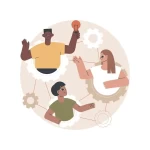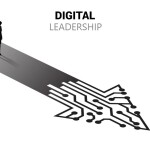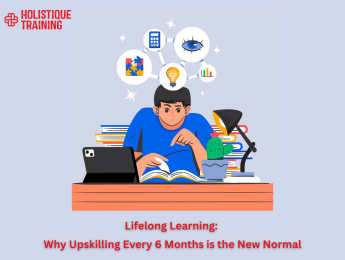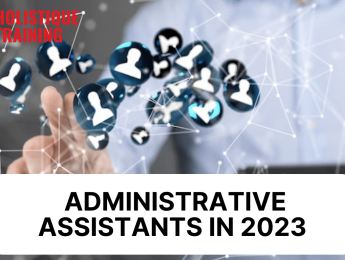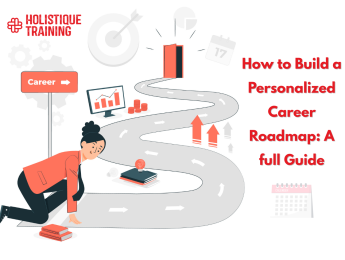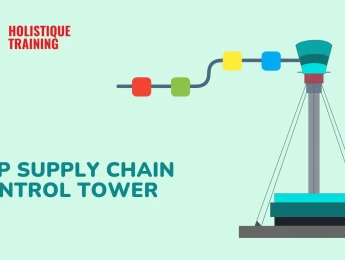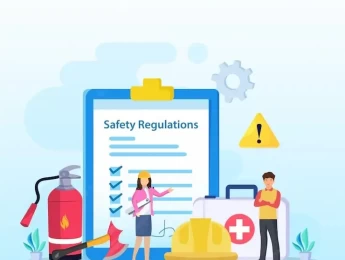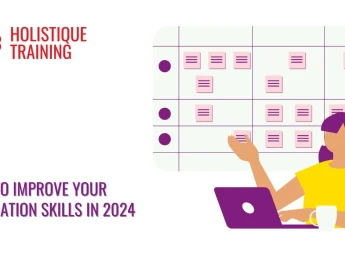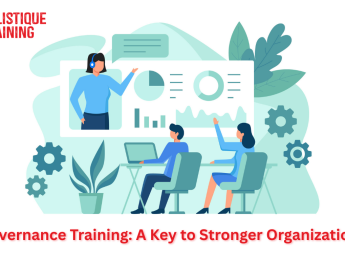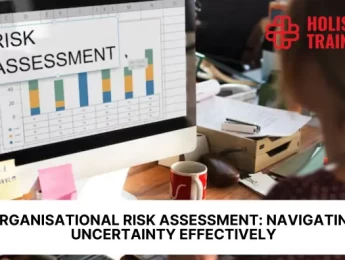- Table of Contents
- Introduction
- What Are Soft Skills?
- Soft Skills: Then vs. Now
- Difference Between Hard and Soft Skills
- Why Are Soft Skills Important to Acquire?
- 1. Enhancing Communication and Collaboration
- 2. Building Strong Professional Relationships
- 3. Adaptability in a Rapidly Changing World
- 4. Unlocking Leadership Potential
- 5. Driving Career Advancement
- 6. Fostering Creativity and Innovation
- 7. Improving Resilience and Stress Management
- 8. Creating a Positive Workplace Culture
- What Are the Top Soft Skills for Career Success Nowadays?
- 1. Communication
- 2. Emotional Intelligence (EQ)
- 3. Adaptability
- 4. Teamwork and Collaboration
- 5. Problem-Solving
- 6. Time Management
- 7. Conflict Resolution
- 8. Leadership
- 9. Critical Thinking
- 10. Creativity
- Steps to Master Soft Skills
- 1. Self-Assessment and Awareness
- 2. Set Clear Goals
- 3. Learn from Role Models
- 4. Practice Consistently
- 5. Seek Feedback and Act on It
- 6. Develop Emotional Intelligence
- 7. Take Courses and Workshops
- 8. Read and Learn Continuously
- 9. Step Out of Your Comfort Zone
- 10. Be Patient and Persistent
- Final Thoughts
- Conclusion
Introduction
Success in any career is no longer just about technical expertise or academic qualifications. It’s about how well you communicate, how effectively you collaborate, and how you adapt to change. This blog post explores the concept of "Soft Skill Mastery" and its pivotal role in shaping careers. We’ll dive into what soft skills are, how they’ve evolved over time, and why mastering them is essential in today’s professional landscape. Additionally, we’ll highlight the top soft skills for career success and provide actionable steps to help you develop and refine these invaluable abilities.
What Are Soft Skills?
Soft skills are the personal attributes, interpersonal abilities, and emotional intelligence that enable individuals to navigate their work environments, build relationships, and perform effectively in teams. Unlike hard skills, which are technical and measurable, soft skills are more abstract and tied to one’s personality, behavior, and mindset.
Examples of soft skills include communication, teamwork, problem-solving, adaptability, and time management. These skills are not confined to a specific industry or role; they are universally applicable and determine how well you interact with others and respond to challenges in any professional setting.
Think of soft skills as the glue that holds your technical expertise together. You might be a coding genius or a financial wizard, but without the ability to communicate your ideas, collaborate with colleagues, or manage your time effectively, your technical skills can only take you so far. Soft skills are what make you not just a competent employee but a valuable team player and leader.
Soft Skills: Then vs. Now
The importance of soft skills is not a new concept, but the way they are perceived and prioritized has evolved significantly over time. In the past, soft skills were often considered secondary to hard skills. Employers focused more on technical expertise and formal qualifications, assuming that interpersonal and emotional competencies were either innate or less critical to job performance.
However, the modern workplace has shifted dramatically. The rise of automation, artificial intelligence, and remote work has transformed the nature of jobs and the skills required to excel in them. Tasks that were once purely technical are now being handled by machines, leaving humans to focus on roles that require creativity, empathy, and critical thinking—qualities that cannot be replicated by technology.
Moreover, the globalized nature of today’s economy means that professionals often work in diverse teams, across cultures and time zones. This has amplified the need for strong communication, adaptability, and collaboration skills. Soft skills are no longer a “nice-to-have” but a necessity for thriving in the workplace of the future.
Difference Between Hard and Soft Skills
To truly appreciate the value of soft skills, it’s important to understand how they differ from hard skills.
- Hard Skills: These are technical abilities or knowledge that can be taught, measured, and proven through certifications or tests. Examples include proficiency in programming languages, accounting, data analysis, or operating machinery. Hard skills are specific to a job or industry and are often the foundation for landing a role.
- Soft Skills: These are more subjective and harder to quantify. They encompass interpersonal and emotional abilities such as leadership, empathy, and conflict resolution. Soft skills are transferable across roles and industries, making them equally, if not more, important than hard skills in the long run.
Think of hard skills as the “what” of your job—what you do, what tools you use, and what processes you follow. Soft skills, on the other hand, are the “how”—how you approach tasks, how you interact with others, and how you adapt to challenges. Both are essential, but soft skills often determine whether you succeed in applying your hard skills effectively.
Why Are Soft Skills Important to Acquire?
The significance of soft skills cannot be overstated. Here are some key reasons why they are essential for career success:
1. Enhancing Communication and Collaboration
Effective communication is at the heart of every successful organization. Whether you’re presenting an idea, writing an email, or participating in a meeting, your ability to convey your thoughts clearly and listen actively can make or break the outcome. Strong communication skills foster collaboration, reduce misunderstandings, and ensure that everyone is aligned toward shared goals. In team-based environments, soft skills like active listening, open-mindedness, and clarity of expression help create a harmonious and productive workplace.
2. Building Strong Professional Relationships
The workplace is more than just a collection of tasks—it’s a network of relationships. Soft skills like empathy, emotional intelligence, and interpersonal skills enable you to connect with colleagues, clients, and stakeholders on a deeper level. These relationships are critical for creating trust, resolving conflicts, and ensuring long-term professional success. When people feel heard, respected, and valued, they are more likely to collaborate effectively and support one another.
3. Adaptability in a Rapidly Changing World
The modern workplace is characterized by constant change, whether it’s new technologies, evolving industries, or unexpected challenges like global crises. Adaptability—a key soft skill—allows you to navigate these changes with resilience and a growth mindset. Employers value professionals who can embrace change, learn new skills, and pivot their strategies when needed. In fact, adaptability often determines whether you can stay relevant and competitive in a fast-paced job market.
4. Unlocking Leadership Potential
Leadership is not just about managing tasks; it’s about inspiring and guiding others toward a common vision. Soft skills like decision-making,problem-solving, and emotional intelligence are the cornerstones of effective leadership. Leaders who possess strong soft skills can motivate their teams, handle conflicts diplomatically, and create an environment where everyone feels empowered to contribute. Even if you’re not in a formal leadership role, these skills can position you as a trusted and influential team member.
5. Driving Career Advancement
In today’s competitive job market, technical expertise alone is rarely enough to stand out. Employers are increasingly looking for candidates who demonstrate well-roundedness—those who can balance technical proficiency with interpersonal finesse. Soft skills like communication, teamwork, and critical thinking can set you apart from your peers, making you a more attractive candidate for promotions, leadership roles, or new opportunities. They show that you’re not just capable of doing the job but also of contributing positively to the organization’s culture and success.
6. Fostering Creativity and Innovation
Soft skills like creativity and critical thinking are essential for solving complex problems and generating innovative ideas. In industries where innovation is key to staying ahead of the competition, these skills can help you think outside the box, challenge the status quo, and propose solutions that drive progress. Teams that value and cultivate creativity often find themselves at the forefront of their industries, and individuals with these skills are highly sought after.
7. Improving Resilience and Stress Management
The ability to manage stress and stay composed under pressure is a hallmark of emotional intelligence—a vital soft skill. Professionals who can regulate their emotions, prioritize tasks, and maintain focus during challenging times are more likely to succeed and inspire confidence in others. Resilience not only helps you navigate personal challenges but also positions you as a dependable team member who can handle high-stakes situations with grace.
8. Creating a Positive Workplace Culture
Soft skills contribute significantly to the overall culture of an organization. Employees who exhibit empathy, inclusivity, and respect for diversity help foster a workplace where everyone feels valued and supported. This, in turn, leads to higher employee satisfaction, better retention rates, and improved overall performance. Organizations with strong cultures of collaboration andemotional intelligence are often more successful in achieving their goals.
Mastering soft skills is not just about personal growth—it’s about creating a ripple effect that benefits your team, organization, and career. These skills empower you to build meaningful relationships, adapt to challenges, and contribute to a positive and productive workplace. In an era where human-centric abilities are becoming increasingly valuable, investing in your soft skills is one of the smartest moves you can make for long-term career success.
What Are the Top Soft Skills for Career Success Nowadays?
While all soft skills are valuable, some are particularly critical in today’s professional landscape. Here are the top soft skills to focus on:
1. Communication
Effective communication is the foundation of all professional interactions. It’s not just about speaking or writing well but also about listening actively, understanding non-verbal cues, and tailoring your message to your audience. Whether you’re explaining a complex idea in a meeting, negotiating with a client, or resolving a misunderstanding with a colleague, strong communication skills ensure clarity and mutual understanding. In a world where remote work and virtual communication are increasingly common, the ability to articulate your thoughts clearly and concisely has never been more important.
2. Emotional Intelligence (EQ)
Emotional intelligence is the ability to understand and manage your own emotions while empathizing with others. It’s a critical skill for building strong relationships, resolving conflicts, and creating a positive work environment. People with high EQ are better at handling stress, staying calm under pressure, and navigating complex interpersonal dynamics. In leadership roles, emotional intelligence is particularly valuable, as it helps you inspire trust, motivate your team, and make thoughtful decisions that take others’ perspectives into account.
3. Adaptability
In today’s fast-paced and ever-changing work environment, adaptability is a game-changer. Whether it’s learning a new technology, adjusting to a restructured team, or pivoting your strategy in response to market trends, the ability to embrace change and remain flexible is essential. Employers value professionals who can step out of their comfort zones, learn quickly, and thrive in uncertain situations. Adaptability also reflects a growth mindset—the belief that you can develop new skills and improve over time—which is a highly sought-after trait.
4. Teamwork and Collaboration
Most jobs today require some degree of teamwork, whether you’re working on a cross-functional project, brainstorming with colleagues, or supporting a shared organizational goal. Teamwork involves more than just working alongside others—it’s about actively contributing, respecting diverse perspectives, and finding ways to achieve collective success. Collaboration is especially important in today’s globalized and multicultural workplaces, where working effectively with people from different backgrounds and viewpoints is key to innovation and productivity.
5. Problem-Solving
Problem-solving is the ability to analyze situations, identify challenges, and come up with practical solutions. It’s a skill that goes hand-in-hand with critical thinking, as both require a logical and creative approach to overcoming obstacles. Employers value problem-solvers because they can tackle issues proactively, minimize disruptions, and find ways to improve processes. Whether it’s resolving a customer complaint, streamlining a workflow, or addressing team conflicts, strong problem-solving skills demonstrate your ability to think on your feet and deliver results.
6. Time Management
Time management is the art of prioritizing tasks, managing deadlines, and staying organized to maximize productivity. In today’s fast-paced work environments, where multitasking is often the norm, the ability to manage your time effectively is crucial. Professionals with strong time management skills can juggle competing priorities, avoid burnout, and consistently deliver high-quality work. Tools like to-do lists, project management software, and calendar scheduling can help, but the real key lies in discipline, focus, and the ability to say “no” when necessary.
7. Conflict Resolution
Conflict is inevitable in any workplace, but how you handle it can make all the difference. Conflict resolution requires a combination of empathy, communication, and problem-solving skills to address disagreements in a constructive manner. Whether it’s mediating between colleagues, resolving misunderstandings, or finding common ground during negotiations, the ability to manage conflict effectively fosters a positive work environment and strengthens relationships. Employers highly value individuals who can turn conflicts into opportunities for growth and collaboration.
8. Leadership
Leadership is not confined to those in managerial positions—it’s a skill that anyone can develop and demonstrate. Strong leaders inspire and motivate others, take initiative, and guide their teams toward achieving goals. Leadership also involves decision-making, delegation, and the ability to take responsibility for outcomes. In today’s workplace, leadership often requires a collaborative approach, where empowering others and fostering a culture of trust and respect are just as important as driving results.
9. Critical Thinking
Critical thinking is the ability to evaluate information, analyze data, and make informed decisions. In a world overflowing with information, the ability to think critically and distinguish between relevant and irrelevant details is invaluable. This skill helps you identify opportunities, anticipate challenges, and approach problems with a strategic mindset. Employers value critical thinkers because they can navigate ambiguity, make sound judgments, and contribute to innovative solutions.
10. Creativity
Creativity is about thinking outside the box and coming up with innovative ideas or solutions. It’s not limited to artistic professions—creativity is equally important in business, technology, and other fields where problem-solving and innovation are key. Whether you’re brainstorming new marketing strategies, designing a product, or finding ways to improve efficiency, creativity allows you to approach challenges with fresh perspectives. In a competitive job market, professionals who can bring unique ideas to the table are highly sought after.
The professional world is evolving, and the demand for soft skills is growing rapidly. These top soft skills are no longer optional—they are essential for navigating the complexities of modern workplaces. Whether you’re looking to land your first job, excel in your current role, or advance to a leadership position, focusing on these skills will set you apart and position you for long-term success.
By mastering these top soft skills, you’ll not only enhance your individual performance but also contribute to building a more collaborative, innovative, and resilient workplace.
Steps to Master Soft Skills
Mastering soft skills is a journey that requires self-awareness, consistent effort, and a commitment to personal growth. Unlike hard skills, which can often be learned through structured courses or certifications, soft skills are developed through experience, practice, and reflection. Below are actionable steps to help you cultivate and refine your soft skills for professional and personal success.
1. Self-Assessment and Awareness
The first step to mastering soft skills is understanding your strengths and areas for improvement. Take time to reflect on your behavior, communication style, and interactions with others. Ask yourself questions like:
- How well do I communicate my ideas?
- Am I empathetic and understanding toward others?
- How do I handle stress or conflict?
You can also seek feedback from colleagues, mentors, or friends to gain an outside perspective on your soft skills. Tools like personality assessments (e.g.,Myers-Briggs, DISC) or emotional intelligence tests can provide additional insights into your interpersonal strengths and areas to work on.
2. Set Clear Goals
Once you’ve identified the soft skills you want to improve, set specific, measurable goals to guide your development. For example:
- If you want to improve communication, aim to give a presentation or lead a meeting.
- If you’re working on time management, set a goal to complete tasks ahead of deadlines for a month. Breaking down your goals into smaller, actionable steps makes the process manageable and allows you to track your progress over time.
3. Learn from Role Models
Observe people who excel in the soft skills you want to develop. This could be a colleague, mentor, or even a public figure. Pay attention to how they communicate, solve problems, or lead others. What behaviors or strategies do they use? By studying their approach, you can adopt similar practices and adapt them to your own style.
4. Practice Consistently
Soft skills are like muscles—they grow stronger with regular use. Look for opportunities to practice the skills you want to improve in your daily life. For example:
- To enhance teamwork, volunteer to collaborate on group projects.
- To develop adaptability, challenge yourself to take on new tasks or roles outside your comfort zone.
- To improve conflict resolution, practice active listening and empathy during disagreements.
The more you practice, the more natural these skills will become.
5. Seek Feedback and Act on It
Constructive feedback is essential for growth. Ask for honest input from trusted colleagues, mentors, or supervisors about how you’re applying your soft skills. For example, after a presentation, you might ask, “Did I communicate my points clearly?” or “What could I do differently next time?” Be open to criticism and use it to refine your approach. Remember, feedback is a tool for improvement, not a personal judgment.
6. Develop Emotional Intelligence
Emotional intelligence (EQ) is the cornerstone of many soft skills, including empathy, communication, and conflict resolution. To build your EQ:
- Practice self-awareness by identifying your emotions and understanding how they influence your actions.
- Work on self-regulation by managing stress and staying calm under pressure.
- Cultivate empathy by putting yourself in others’ shoes and considering their perspectives.
Improving your EQ will enhance your ability to connect with others and navigate complex interpersonal situations.
7. Take Courses and Workshops
While soft skills are often learned through experience, formal training can provide valuable guidance and structure. Many organizations offer workshops, seminars, or online courses focused on specific soft skills, such as leadership, communication, or time management. Platforms likeHolistique Training and LinkedIn Learning also offer a wide range of courses tailored to professional development.
8. Read and Learn Continuously
Books, articles, and podcasts are excellent resources for learning about soft skills. Some recommended reads include:
- Emotional Intelligence 2.0 by Travis Bradberry and Jean Greaves (for emotional intelligence).
- Crucial Conversations by Kerry Patterson et al. (for communication and conflict resolution).
- The 7 Habits of Highly Effective People by Stephen R. Covey (for personal and professional effectiveness).
Consistently exposing yourself to new ideas and strategies will deepen your understanding and keep you motivated.
9. Step Out of Your Comfort Zone
Growth happens when you challenge yourself. Look for opportunities to step outside your comfort zone and apply your soft skills in unfamiliar or high-pressure situations. For example:
- Volunteer to lead a project or presentation if you’re working on leadership or communication.
- Take on a role that requires you to interact with people from diverse backgrounds to improve teamwork and cultural sensitivity.
These experiences will help you build confidence and resilience while sharpening your skills.
10. Be Patient and Persistent
Mastering soft skills is a lifelong process that requires patience and persistence. Progress may be gradual, and setbacks are inevitable, but what matters is your commitment to continuous improvement. Celebrate small victories along the way and remind yourself that every effort you make brings you closer to your goals.
Final Thoughts
Developing soft skills is one of the most valuable investments you can make in yourself. These skills not only enhance your professional performance but also improve your relationships and overall quality of life. By following these steps with dedication and consistency, you’ll be well on your way to mastering the soft skills that will set you apart in today’s competitive world.
Conclusion
Soft skills are the cornerstone of career success in today’s fast-paced, interconnected world. They complement technical expertise, enhance workplace relationships, and empower professionals to adapt, lead, and thrive. While mastering soft skills requires time and effort, the rewards are well worth it. By investing in your personal and professional growth, you can unlock your full potential and achieve lasting success in your career.
Whether you’re just starting out or looking to advance in your field, remember that soft skills are not just a “bonus” but a necessity. They are the bridge between competence and excellence, transforming you into a well-rounded, effective, and inspiring professional. Start your journey to soft skill mastery today, and watch your career soar to new heights.



